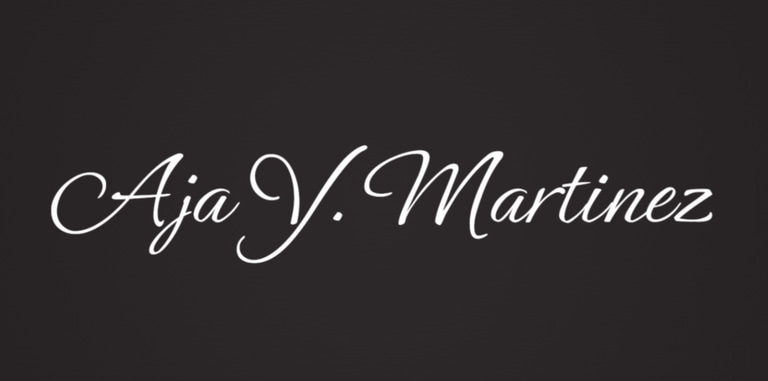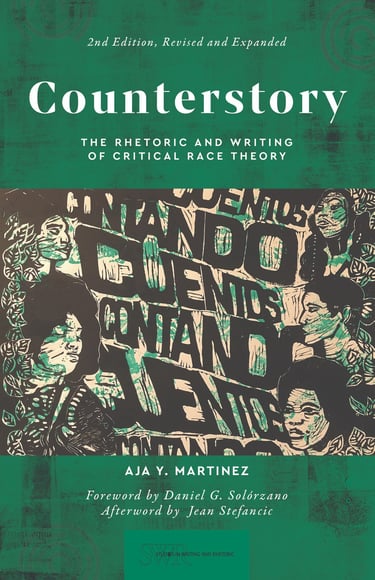

Aja's debut book Counterstory: The Rhetoric and Writing of Critical Race Theory (NCTE, 2020, 2nd ed forthcoming, 2025) makes a compelling case for counterstory as methodology through the well-established framework of critical race theory (CRT).
First reviewing the work of counterstory exemplars Richard Delgado, Derrick Bell, and Patricia J. Williams, Aja demonstrates that counterstory provides opportunities for marginalized voices to contribute to conversations about dominant ideology.
Applying racial and feminist lenses to the rich histories and theories established through counterstory genres, Aja also demonstrates how CRT theories and methods can inform teaching, research, and writing/publishing of counterstory.
Counterstory
The Rhetoric and Writing of Critical Race Theory
Awards and Honors
Named one of the 20 Best New Rhetoric Books to Read in 2021 by BookAuthority
Winner of the 2021 Coalition for Community Writing “Innovations in Community Writing Book Award”
Winner of the 2023 National Council of Teachers of English’s David H. Russell Award for Distinguished Research in the Teaching of English
Winner of the 2023 Conference on College Composition and Communication’s Outstanding Book award, monograph
Winner of the 2023 Conference on College Composition and Communication’s Advancement of Knowledge book award
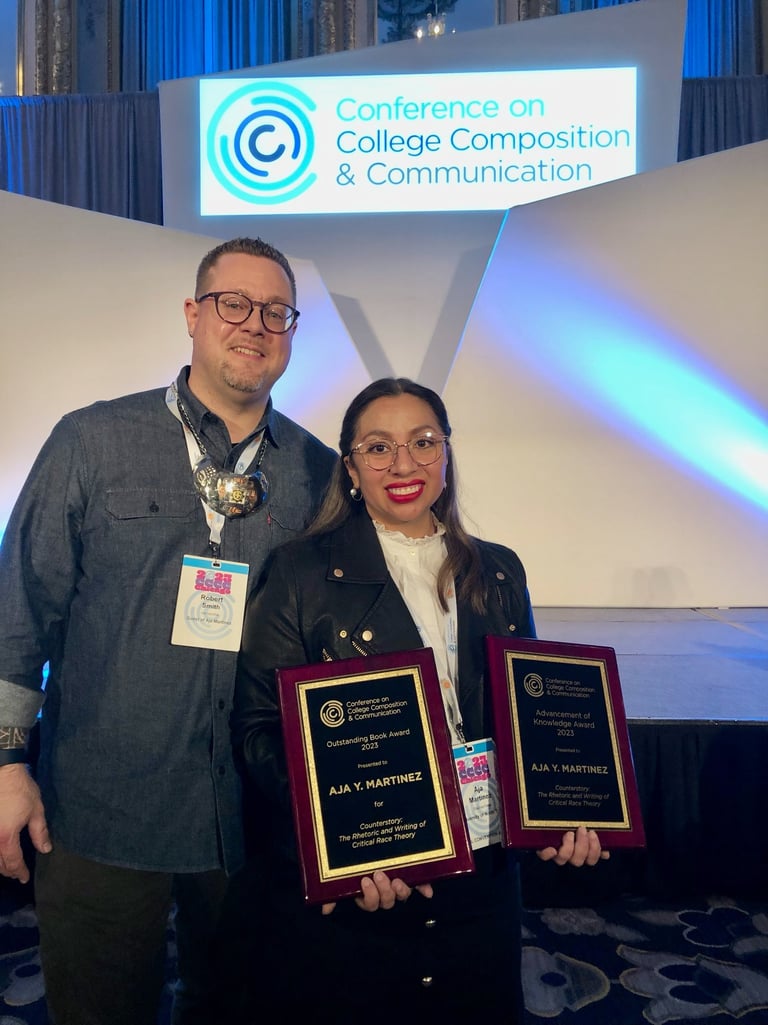

"The fields of rhetoric and writing studies do not always have time for counterstory, but counterstory definitely has time enough for them. In this carefully conceived and stunningly executed book, Aja Martinez demonstrates the worth of counterstory inflected with critical race theory and functioning as method, methodology, and liberating intervention. But more than merely illustrating efficacy, Martinez cogently articulates the necessity of her brand of counterstory if rhetoric and writing studies are ever to deal as productively as they can with race and racism. Counterstory, a notable emergence in a narrative lineage that includes Richard Delgado, Derrick Bell, and Patricia Williams, is a major achievement."
—Keith Gilyard, Edwin Erle Sparks Professor of English and African American Studies, Pennsylvania State University
"I found a home in Dr. Martinez's book, and I know that many scholars who have been fighting to speak their truth, to be heard, and to tell their stories without hedging or justification will find a home in this book too. By illustrating how counterstory functions as both methodology and method, and by demonstrating the connections between story, methodology, and embodied practice, Counterstory: The Rhetoric and Writing of Critical Race Theory is a foundational text that I will incorporate into all my writing courses. Dr. Martinez combines honest, engaging stories with deep theoretical connections. She demonstrates how coalitional scholarship, particularly between Black and Latinx communities, has paved the way for a much-needed reframing of our field."
—Laura Gonzales, University of Florida
Reviewed In
College Composition and Communication | Communication Center Journal |Composition Studies |constellations: a cultural rhetorics publishing space |enculturation: A Journal of Rhetoric, Writing, and Culture |Ethnic and Racial Studies |Radical Teacher |Reflections: A Journal of Community-Engaged Writing and Rhetoric | Rhetoric, Politics & Culture |Rhetoric Review |Rhetoric Society Quarterly
Praise for Counterstory
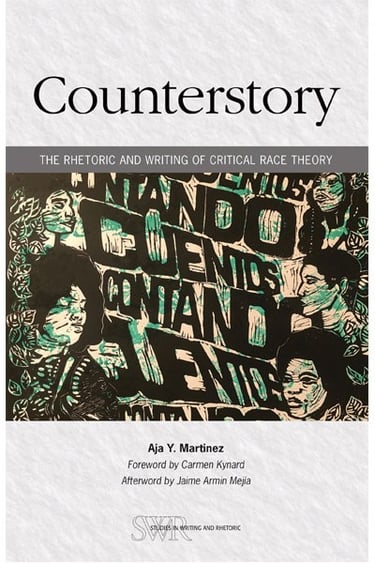

Code-Meshing as World English
Pedagogy, Policy, Performance
While acknowledging the difficulties in implementing a code-meshing pedagogy, editors Vershawn Ashanti Young and Aja Y. Martinez, along with a range of scholars from international and national literacy studies, English education, writing studies, sociolinguistics, and critical pedagogy, argue that all writers and speakers benefit when we demystify academic language and encourage students to explore the plurality of the English language in both unofficial and official spaces.
The original essays in this collection offer various perspectives on why code-meshing―blending minoritized dialects and world Englishes with Standard English―is a better pedagogical alternative than code-switching in the teaching of reading, writing, listening, speaking, and visually representing to diverse learners.
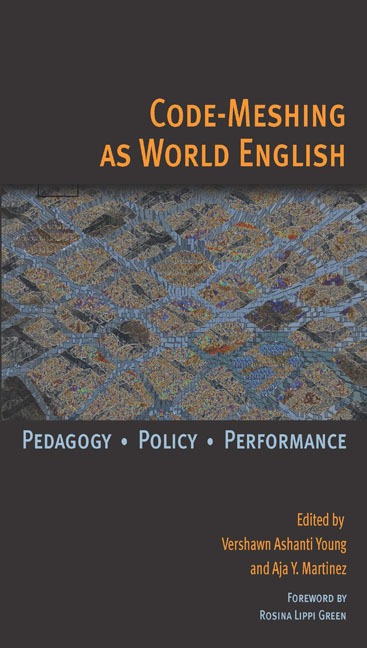

Insights
Exploring critical race theory and its impact.
Research
Connect
© 2024. All rights reserved.
